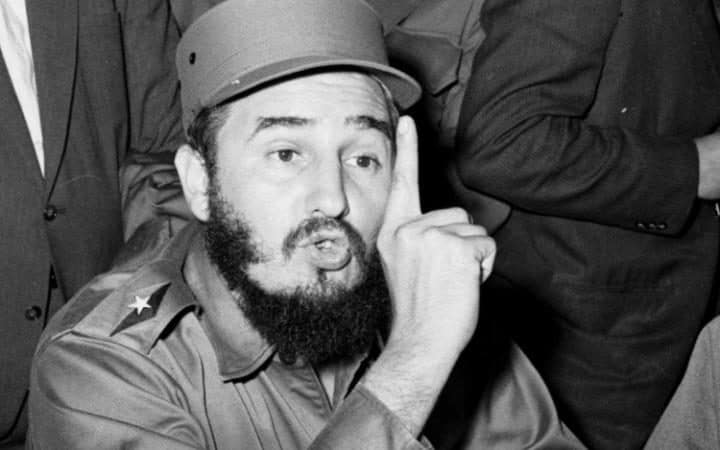Fidel Castro 1926-2016

Fidel Castro, Cuba's leader of revolution, has died aged 90. We present an extract from Tariq Ali's introduction to The Declarations of Havana, Verso's collection of Castro's speeches.
On 26 July 1953 an angry young lawyer, Fidel Castro, led a small band of armed men in an attempt to seize the Moncada barracks in Santiago de Cuba, in Oriente province. Most of the guerrillas were killed. Castro was tried and defended himself with a masterly speech replete with classical references and quotations from Balzac and Rousseau, that ended with the words: 'Condemn me. It does not matter. History will absolve me.' It won him both notoriety and popularity.
Released in an amnesty in 1954, Castro left the island and began to organize a rebellion in Mexico. For a time he stayed in the hacienda that had once belonged to the legendary Mexican revolutionary Emiliano Zapata. In late November 1956 eighty-two people including Fidel Castro and Che Guevara set sail from Mexico in a tiny vessel, the Granma, and headed for the impenetrable, forested hills of the Sierra Maestra in Oriente province. Ambushed by Batista's men after they landed, twelve survivors reached the Sierra Maestra and began the guerrilla war. They were backed by a strong urban network of students, workers and public employees who became the backbone of the 26 July Movement. In 1958 the guerrilla armies began to move from the mountains to the plains: a column led by Fidel began to take towns in Oriente, while Che Guevara's irregulars stormed and took the central Cuban city of Santa Clara. The day after, Batista and his Mafia chums fled the island as the Rebel Army, now greeted as liberators, marched across the island into Havana. The popularity of the Revolution was there for all to see. Castro's victory stunned the Americas. It soon became obvious that this was no ordinary event. Any doubts as to the Revolution's intentions were dispelled by the First Declaration of Havana, Castro's declaration of total Independence from the US made in public before a million people in Revolution Square. Washington reacted angrily and hastily, trying to cordon off the new regime from the rest of the continent. This led to a radical response by the Cuban leadership. It decided to nationalize US-owned industries without compensation. Three months later, on 13 October 1961, the United States severed diplomatic relations; subsequently, it armed Cuban exiles in Florida and launched an invasion of the island near the Bay of Pigs. It was defeated. President Kennedy then imposed a total economic blockade, pushing the Cubans in Moscow's direction. On 4 February 1962, the Second Declaration of Havana denounced the US presence in South America and called for the liberation of the entire continent. Forty years later Castro explained the necessity for the Declarations:
At the beginning of the Revolution ... we made two statements, which we called the First Declaration of Havana and the Second Declaration of Havana. That was during a rally of over a million people in Revolution Square. Through these declarations, we were responding to the plans hatched in the United States against Cuba and against Latin America - because the United States forced every Latin American country to break off relations with Cuba ... [These declarations] said that an armed struggle should not be embarked on if there existed legal and constitutional conditions for a peaceful civic struggle. That was our thesis in relation to Latin America ...
While they were in the Sierra Maestra, the direction that the revolution would take was still not clear - even to Castro. Until that point, he had never been a socialist, and relations with the official Cuban Communist Party were often tense. It was the reaction of that noisy and powerful neighbour from the north that helped determine the orientation of the Revolution. The results were mixed. Politically, the dependence on the Soviet Union led to the mimicking of Soviet institutions and all that that entailed. Socially the Cuban Revolution created an education system and health service that remain the envy of much of the neo-liberal world. History will be the final judge, but Fidel Castro has already been elevated by a vast number of Latin Americans to the plinth occupied by those great liberators Bolívar, San Martín, Sucre and José Martí.
